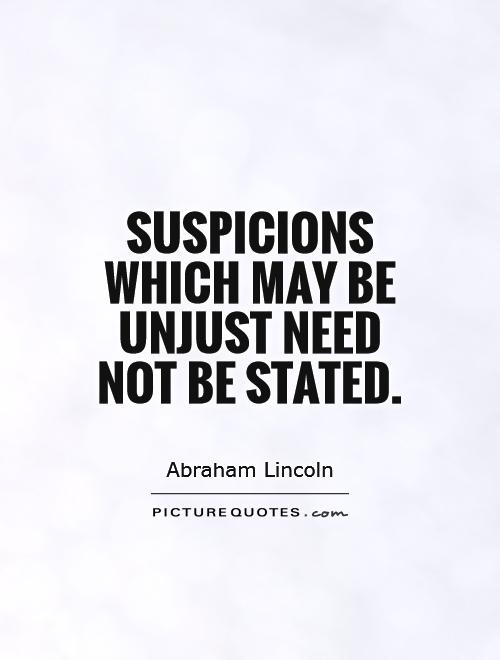Suspicions which may be unjust need not be stated

Suspicions which may be unjust need not be stated
Abraham Lincoln, the 16th President of the United States, was a man known for his wisdom, integrity, and honesty. Throughout his presidency, Lincoln faced numerous challenges and obstacles, but he always remained true to his principles and values. One of the key aspects of Lincoln's character was his ability to rise above petty suspicions and baseless accusations.Lincoln understood that in the world of politics, there would always be those who sought to undermine him and spread rumors about his intentions. However, he firmly believed that suspicions which may be unjust need not be stated. Lincoln knew that by giving credence to unfounded suspicions, he would only be feeding into the negativity and divisiveness that plagued the country during his time in office.
Instead, Lincoln chose to focus on his work and his mission to preserve the Union and end slavery. He believed that actions spoke louder than words, and that his deeds would ultimately speak for themselves. By staying true to his principles and refusing to engage in petty gossip and accusations, Lincoln was able to maintain the trust and respect of the American people.
Lincoln's approach to dealing with suspicions can be seen in his handling of the Civil War. Despite facing intense criticism and opposition from both the North and the South, Lincoln remained steadfast in his commitment to preserving the Union. He refused to be swayed by the suspicions and doubts of his detractors, choosing instead to stay focused on his goal of reuniting the country.












 Friendship Quotes
Friendship Quotes Love Quotes
Love Quotes Life Quotes
Life Quotes Funny Quotes
Funny Quotes Motivational Quotes
Motivational Quotes Inspirational Quotes
Inspirational Quotes